Colorado governor focuses on schools, education during COVID briefing Tuesday
DENVER (KRDO) -- Gov. Jared Polis had three guests speaking with him during his weekly briefing on the state's COVID-19 response Tuesday, and the focus was on schools and education.
Joining Polis was Katy Anthes, state commissioner of education; Rico Munn, superintendent of Aurora Public Schools; and Dr. Chris Rogers, a child/adolescent psychiatrist and medical director of child and adolescent services at the Medical Center of Aurora.
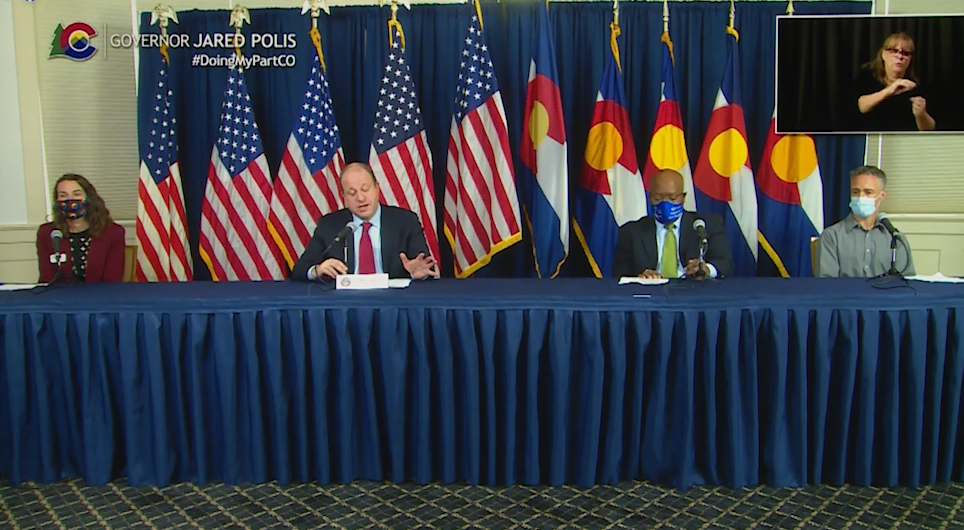
Polis said he's concerned that school enrollment is down because an unspecified number of parents are not allowing their kids to return to school for classroom learning, out of fear of contracting the virus.
The governor also said those same parents haven't enrolled their kids in an online learning program, likely because of dissatisfaction with the program at their kid's school.

"We understand there are a lot of reasons why this is happening," Polis said during the hourlong briefing. "Some parents may be working more than one job and can't be as involved in their child's education. Some parents may have lost a job. Some parents may be caring for a relative who has the virus. A family may be dealing with homelessness, hunger, loneliness and other issues."
But the governor said that's no excuse to keep kids away from learning.
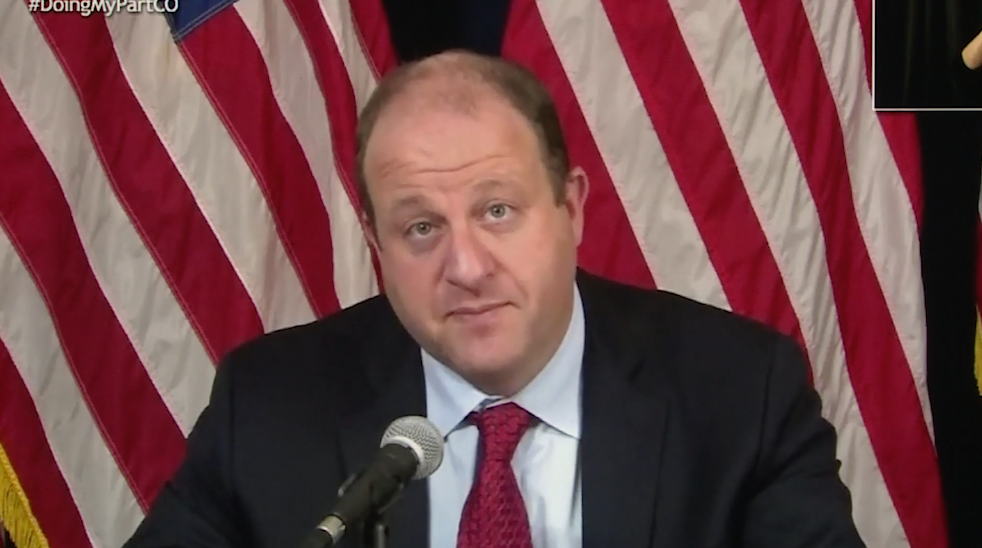
"We're asking parents to at least enroll their kids in an online learning program," he said. "If you don't like the program at your school, there are hundreds of others available to choose from. If a student or a family is having issues, we have the resources to help, but we don't know what help they may need if students aren't enrolled."
Polis said all students will eventually return to the classroom, and falling behind in learning will only hurt them later on.

"Don't let your child's education become a victim of the pandemic," he said. "Our communities -- churches, friends, neighborhood groups -- can help keep track of kids and their needs. It may be harder now for parents to oversee their child's education."
Anthes said teachers are working as hard as they can to educate kids during the pandemic, even with fewer teachers working out of concern about the virus.
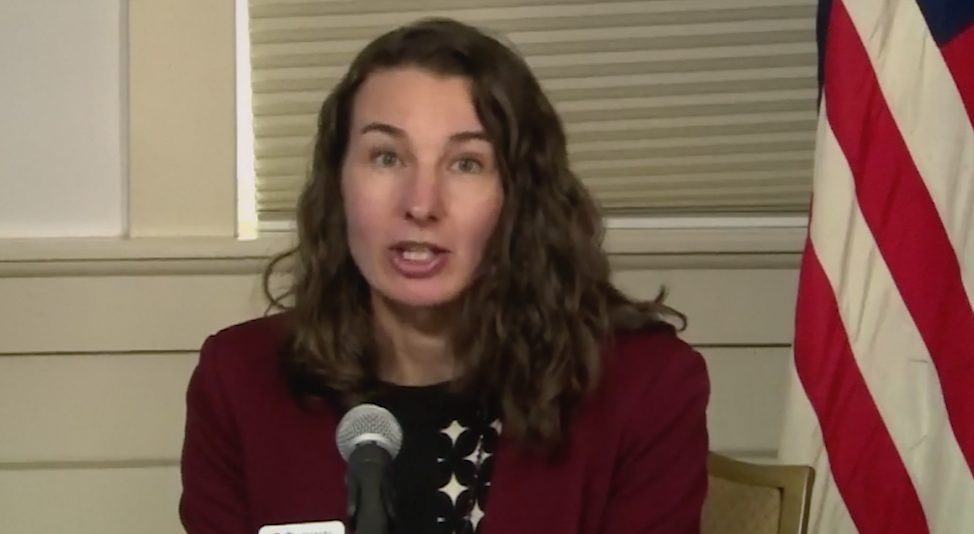
"I'm grateful for all of the teachers who are exploring different ways to connect with students, working hard to reach the students they haven't heard from, and creating a sense of belonging because that is so important during this time of isolation," she said.
Rogers said that students need structure, whether that's in the classroom or during online learning.
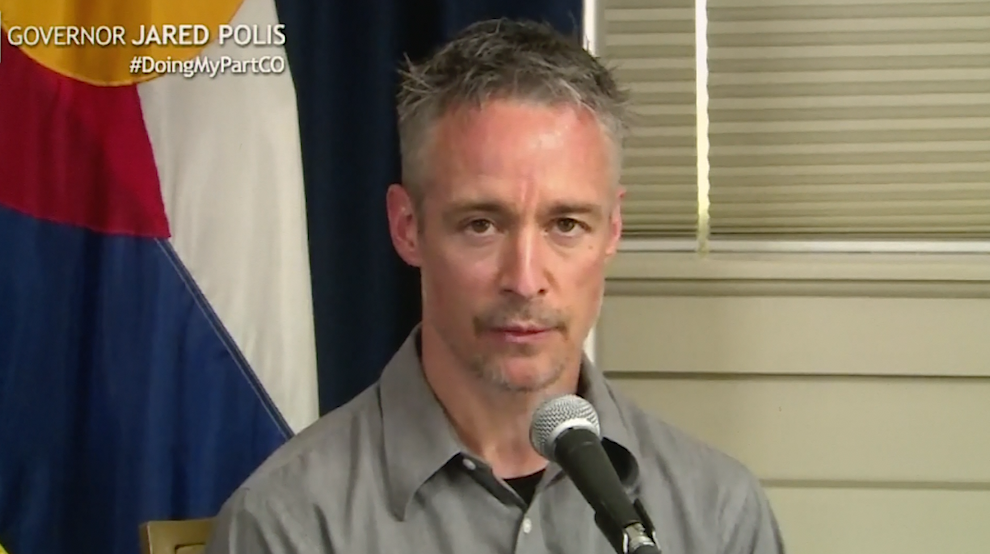
"Kids do best when they know what to expect from day-to-day life," he said. "One of the things we can do to promote a sense of normalcy for our children during this pandemic, is to provide this clear schedule --particularly when learning remotely."
Munn, who leads the state's fifth-largest school district, said that educators, teachers and state officials have the resources available to convince parents who still have kids staying at home, to return to school.
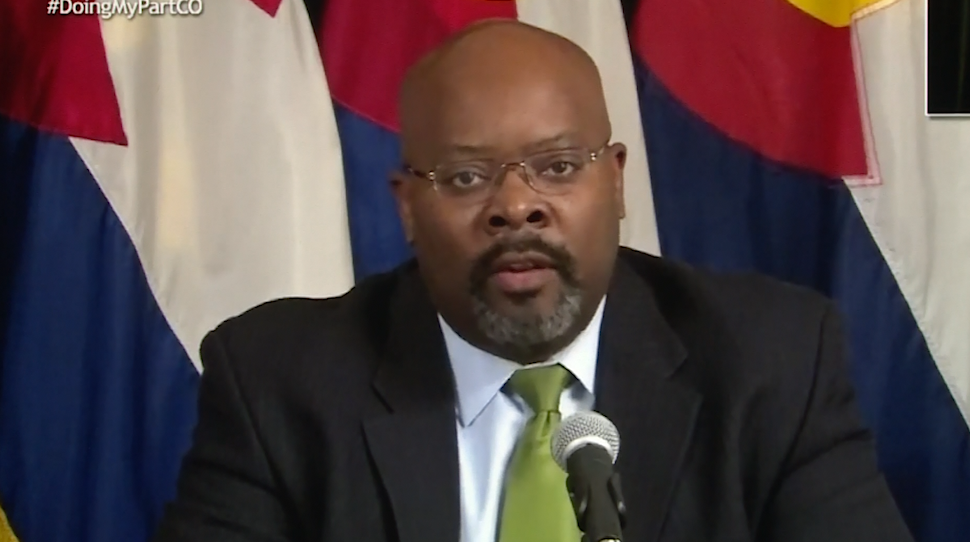
"We started planning in April," he said. "We invested in new technology and training. We have a licensed mental health professional in every school. We provide meals. But we can't connect with families in need if we don't know who they are and where they are."
